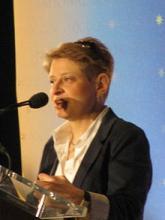In Praise of Foxy Scholars
PRINCETON – We live in a complicated world, so we are forced to simplify it. We categorize people around us as friends or foes, classify their motives as good or bad, and ascribe events with complex roots to straightforward causes. Such shortcuts help us navigate the complexities of our social existence. They help us form expectations about the consequences of our and others’ actions, and thereby facilitate decision-making.
But, because such “mental models” are simplifications, they are necessarily wrong. They may serve us well as we navigate our daily challenges, but they leave out many details and can backfire when we find ourselves in an environment in which our categorizations and ready-made explanations fit less well. The term “culture shock” refers to situations in which our expectations about people’s behavior turn out to be so wrong that we find ourselves jolted by the experience.
And yet, without these shortcuts we would be either lost or paralyzed. We have neither the mental capacity nor the understanding to decipher the full web of cause-and-effect relations in our social existence. So our daily behavior and reactions must be based on incomplete, and occasionally misleading, mental models.
The best that social science has to offer is in fact not much different. Social scientists – and economists in particular – analyze the world using simple conceptual frameworks that they call “models.” The virtue of such models is that they make explicit the chain of cause and effect, and therefore render transparent the specific assumptions on which a particular prediction rests.
Good social science turns our unexamined intuitions into a map of causal arrows. Sometimes it shows how those intuitions lead to surprising, unanticipated results when extended to their logical conclusions.
Fully general frameworks, such as economists’ beloved Arrow-Debreu model of general equilibrium, are so broad and encompassing that they are totally unhelpful for real-world explanation or prediction. Useful social-science models are invariably simplifications. They leave out many details to focus on the most relevant aspect of a specific context. Applied economists’ mathematical models are the most explicit example of this. But, whether formalized or not, simplified narratives are social scientists’ bread and butter.
Stylized historical analogies often play a similar role. For example, international-relations scholars use the famous meeting between Neville Chamberlain and Adolf Hitler in Munich in 1938 as a model of how appeasing a power bent on expansionism can be futile (or dangerous).
But, as inevitable as simplification is for explanation, it is also a trap. It is easy to get wedded to particular models and fail to recognize that changed circumstances require a different model.
Like other humans, social scientists are prone to over-confidence in their preferred model of the day. They tend to exaggerate the support for the model and discount new evidence that contradicts it – a phenomenon known as “confirmation bias.”
In a world of diverse and changing circumstances, social scientists can do real harm by applying the wrong model. Neoliberal economic policies, predicated on well-functioning markets, misfired in developing countries – just as planning models, presuming competent and capable bureaucrats, failed in an earlier era. The efficient-markets theory led policymakers astray by encouraging them to undertake excessive financial deregulation. It would be costly to apply the analogy of Munich in 1938 to a specific international conflict when the underlying situation is more reminiscent of Sarajevo in 1914.
So how should we choose among alternative simplifications of reality? Rigorous empirical tests may eventually settle questions such as whether the US economy today is suffering more from Keynesian lack of demand or from policy uncertainty. Yet often we need to make decisions in real time, without the benefit of decisive empirical evidence. My research on growth diagnostics (with Ricardo Hausmann, Andrés Velasco, and others) is an example of this style of work, showing how one can identify in a specific context the more binding among a multitude of growth constraints.
Unfortunately, economists and other social scientists get virtually no training in how to choose among alternative models. Neither is such an aptitude professionally rewarded. Developing new theories and empirical tests is regarded as science, while the exercise of good judgment is clearly a craft.
The philosopher Isaiah Berlin famously distinguished between two styles of thinking, which he identified with the hedgehog and the fox. The hedgehog is captivated by a single big idea, which he applies unremittingly. The fox, by contrast, lacks a grand vision and holds many different views about the world – some of them even contradictory.
We can always anticipate the hedgehog’s take on a problem – just as we can predict that market fundamentalists will always prescribe freer markets, regardless of the nature of the economic problem. Foxes carry competing, possibly incompatible theories in their heads. They are not attached to a particular ideology and find it easier to think contextually.
Scholars who are able to navigate from one explanatory framework to another as circumstances require are more likely to point us in the right direction. The world needs fewer hedgehogs and more foxes.
Copyright: Project Syndicate, 2014.
www.project-syndicate.org
This article is brought to you by Project Syndicate that is a not for profit organization.
Project Syndicate brings original, engaging, and thought-provoking commentaries by esteemed leaders and thinkers from around the world to readers everywhere. By offering incisive perspectives on our changing world from those who are shaping its economics, politics, science, and culture, Project Syndicate has created an unrivalled venue for informed public debate. Please see: www.project-syndicate.org.
Should you want to support Project Syndicate you can do it by using the PayPal icon below. Your donation is paid to Project Syndicate in full after PayPal has deducted its transaction fee. Facts & Arts neither receives information about your donation nor a commission.





















